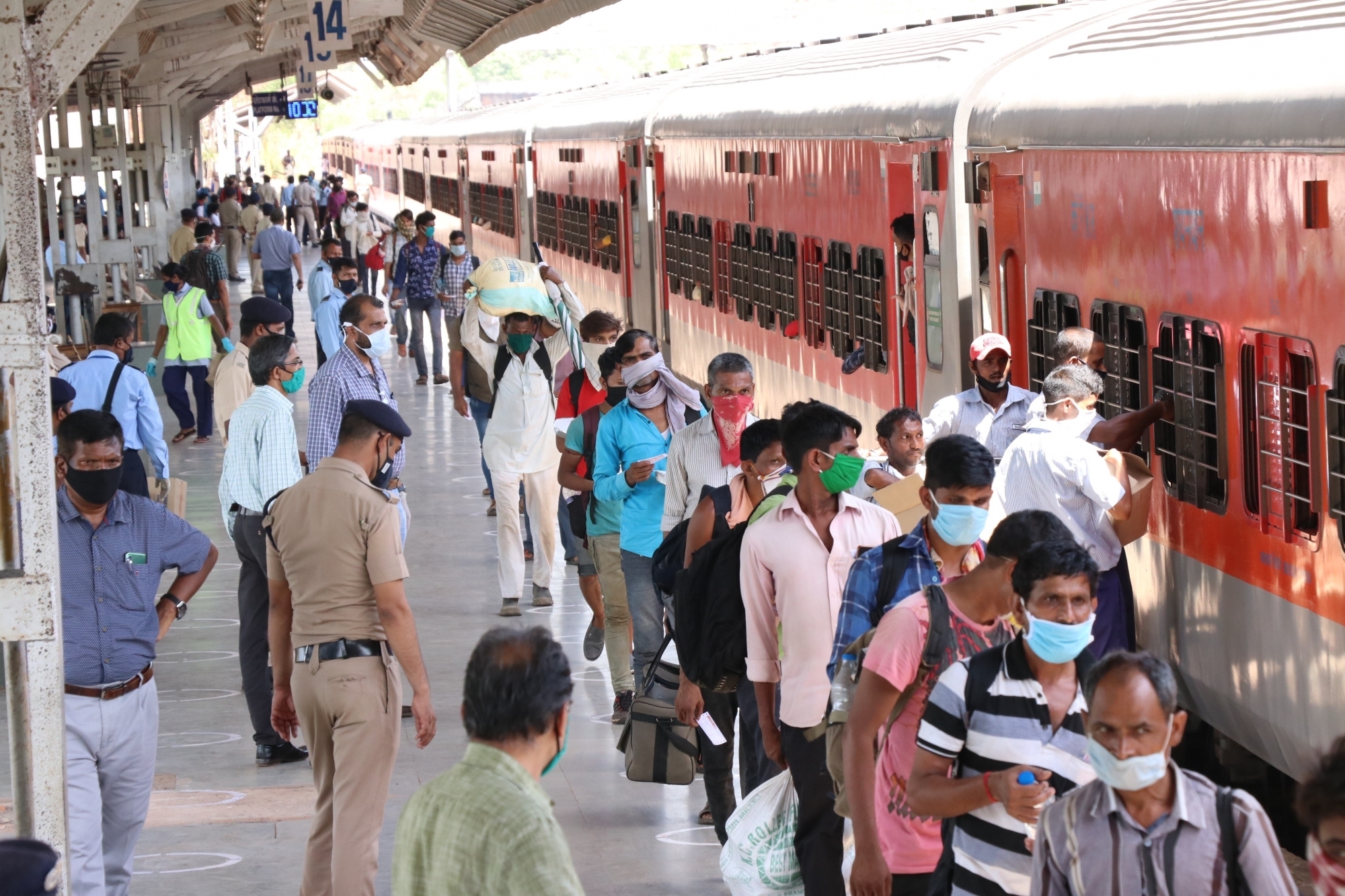New Delhi: As the country gears up for relaxation in lockdown, which was enforced to contain the spread of Covid-19, the fear of a severe manpower shortage in the industries is looming large due to the mass exodus of labourers to their native places.
The farming sector too is concerned about the fate of paddy sowing which is scheduled to start next month, in the absence of migrant farm hands. Besides, the real estate sector, which is heavily dependent on manpower, may also face the heat due to the crisis. The sector is already facing the problems of low capital and demand.
All this is likely to pose a major challenge for different sectors.
Sources said that the industries, including the manufacturing sector, are already under a lot of stress due to the ongoing lockdown, and the shortage of labourers is feared to further aggravate the situation. These sources said that with this shortage, it will be very difficult to run industrial operations as and when the relaxations are lifted completely across the country.
There is no authentic information about the exact number of migrant workers in the country. However, as per estimates, there are around 13.9 crore migrant workers, out of whom, 92% are men. Also, around 92% of migrants work in the unorganised sector. A large number of these workers come from states like Uttar Pradesh, Bihar, Jharkhand, Assam, Odisha, Andhra Pradesh and West Bengal.
After this problem of migration surfaced, the Centre has got into action to get details of the migrant workers. A national register for migrant/unorganised workers is being planned. The Centre has started making a database of migrant workers in various states to monitor their situation in coordination with the states.
According to a leading trade body official, it will be difficult to bring this manpower back to the regions from where they had left. “The situation is unlikely to be fully normal for the next few months. And in this situation, a labourer who has gone to his village is unlikely to return. He can get a job locally under MNREGA or in farming. Also, he may demand for more wages once he returns. In this situation, the industries will suffer a lot,” he said.
In Punjab, the exodus of migrant labourers to their home states is likely to impact the state’s industrial and farm sectors adversely, fear industry representatives and farmers. The farmers are also worried over the fate of paddy sowing, which will start next month. As per reports, in Punjab, alone more than 8 lakh migrant workers got themselves registered for going back to their home states. A large number of these migrant labourers are from Bihar, Uttar Pradesh and Jharkhand.
In Karnataka, the state government took a proactive approach by asking the migrant workers not to leave the state and assured them that their jobs and wages would be protected. However, the labourers put pressure on the government for giving permission to return home after which the state government started working on it and decided to start trains for migrant workers.
Similar is the situation in Tamil Nadu where industries are worried about the possibility of a huge labour scarcity. As per estimates, TN has around 10 lakh inter-state migrant workers and a majority of them want to leave for their homes. A special train with more than 1,100 migrant workers from the state reached Ranchi this week. Sources said the industries are in deep distress as lakhs of migrant workers, including 32,000 from Coimbatore, have expressed their interest in returning home.
In Kerala too, migrant workers want to return to their native places. Three trains carrying these workers left the state. There were protests in Kannur and Ernakulum by other migrant workers demanding they be sent back to their places.
The Centre, as reported earlier, is running “Shramik” trains to ferry migrants, who were stranded in other states, to their respective home states. Earlier, only stranded labourers were keen to go back, but now even those labourers who are not stranded are getting tempted to return, said industry sources.
Apart from the industries, the issue has become a matter of concern for the government also. Union Labour Minister Santosh Kumar Gangwar held a meeting with the Central Trade Union Organisations (CTUOs) this week to the discuss the emergence of the situation arising out of the Covid-19 pandemic and to minimise its impact on workers and on the economy.
Gangwar said there was a need to find solutions to the challenges for workers resulting from the lockdown. The trade unions suggested to provide more trains to transport stranded migrant labourers. But they also said that the labourers be provided with financial assistance to run their families and may also be facilitated to return to work once the situation is under control.
It was also suggested during the meeting to create a national register for migrant workers/unorganised workers with the facilities of portability and data transfer to help them get employment and other assistance. Labour Secretary Heeralal Samariya said that a database of migrant workers in various states was being collected to monitor their situation, in coordination with the states.
Samariya also said that the focus should now be on reviving the industry and gradual opening up of the economy, so that there are adequate employment opportunities. He asked the trade unions to instill confidence among the workers to resume work wherever possible.

